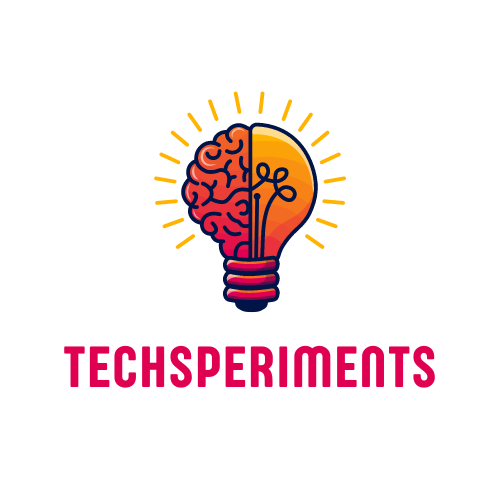Will AI Replace Humans? Don’t Be So Sure: A Devil’s Advocate Perspective (Under 8000 Words)
The rise of Artificial Intelligence (AI) has sparked a firestorm of debate. One of the most prominent concerns is the potential for AI to replace human workers, rendering us obsolete in the face of superior machine intelligence. While automation has undoubtedly impacted the workforce, let’s take a step back and play devil’s advocate. Is the fear of a complete AI takeover truly justified?
This blog delves into the reasons why the “AI takeover” narrative might be overblown. We’ll explore the unique strengths humans possess that AI currently struggles to replicate, the limitations of AI technology, and the potential for human-AI collaboration to create a more prosperous future.
AI’s Achilles’ Heel: The Limits of Machine Learning
At its core, most AI today relies on machine learning, a powerful technique where algorithms learn from vast amounts of data. However, this data-driven approach has limitations:
- Data Bias: AI models trained on biased data can perpetuate those biases in their outputs. This can lead to discriminatory outcomes in areas like hiring or loan approvals. Mitigating bias requires careful data curation and ongoing monitoring.
- The Black Box Problem: Many complex AI models are opaque, making it difficult to understand how they arrive at their decisions. This lack of transparency can be problematic in high-stakes situations where accountability is crucial.
- Limited Generalizability: AI models excel at specific tasks they’re trained on, but often struggle with generalizing to new situations or adapting to unforeseen circumstances. Human adaptability and common sense are often underestimated.
- The Creativity Gap: While AI can generate creative text formats or artistic styles, it often lacks true originality. Humans excel at conceptual thinking, brainstorming new ideas, and pushing creative boundaries.
Beyond Automation: The Irreplaceable Human Touch
Automation is a double-edged sword. While AI can handle repetitive tasks efficiently, several key areas remain firmly in the human domain:
- Social and Emotional Intelligence: Understanding emotions, building rapport, and navigating complex social situations are inherently human strengths. Empathy, compassion, and emotional intelligence are critical in fields like healthcare, customer service, and education.
- Critical Thinking and Problem Solving: AI can analyze data and identify patterns, but true problem-solving often requires critical thinking, reasoning, and the ability to synthesize information from diverse sources. Humans excel at making nuanced judgments and adapting to unforeseen challenges.
- Dexterity and Physical Manipulation: While robots are becoming more sophisticated, many tasks require fine motor skills and the ability to navigate complex physical environments. Human adaptability and dexterity are crucial in fields like construction, surgery, and skilled trades.
- Leadership and Strategic Vision: AI can analyze data and identify trends, but setting goals, making strategic decisions, and inspiring teams are inherently human capabilities. Effective leadership requires vision, emotional intelligence, and the ability to navigate complex human dynamics.
Human-AI Collaboration: A Symbiotic Future
Instead of fearing AI as a replacement, consider the potential for a powerful collaboration:
- Augmenting Human Capabilities: AI can handle tedious tasks, freeing humans to focus on higher-level cognitive work. Imagine doctors using AI for diagnostics while applying their expertise to treatment planning and patient interaction.
- Enhanced Decision-Making: AI can analyze vast amounts of data to identify patterns and trends, providing valuable insights for human decision-makers. This data-driven approach can inform policies, business strategies, and scientific research.
- Accelerated Innovation: Human creativity combined with AI’s ability to process information and generate new ideas can lead to breakthroughs in various fields. Imagine AI helping scientists explore new avenues in drug discovery while human researchers provide the vision and expertise to guide the process.
The Human Advantage: Adaptability and Lifelong Learning
The world is constantly changing, and the skills needed to thrive are evolving. Humans possess a unique ability to adapt and learn throughout their lives. The education system needs to equip individuals with the skills to thrive in an AI-powered world, fostering critical thinking, problem-solving, creativity, and social-emotional intelligence. By embracing lifelong learning, we can ensure that humans remain valuable contributors in a world increasingly shaped by AI.
The Ethical Considerations: A Future We Build Together
The development and deployment of AI raise critical ethical questions. Ensuring fairness, transparency, and accountability is paramount. We must be vigilant in identifying and mitigating bias in AI systems. Regulations and ethical frameworks are needed to guide AI development and deployment to ensure it benefits everyone.
Conclusion: A Future of Collaboration, Not Competition
The rise of AI shouldn’t be viewed as a zero-sum game where humans and machines compete for dominance. The future lies in collaboration.

Leave a Reply